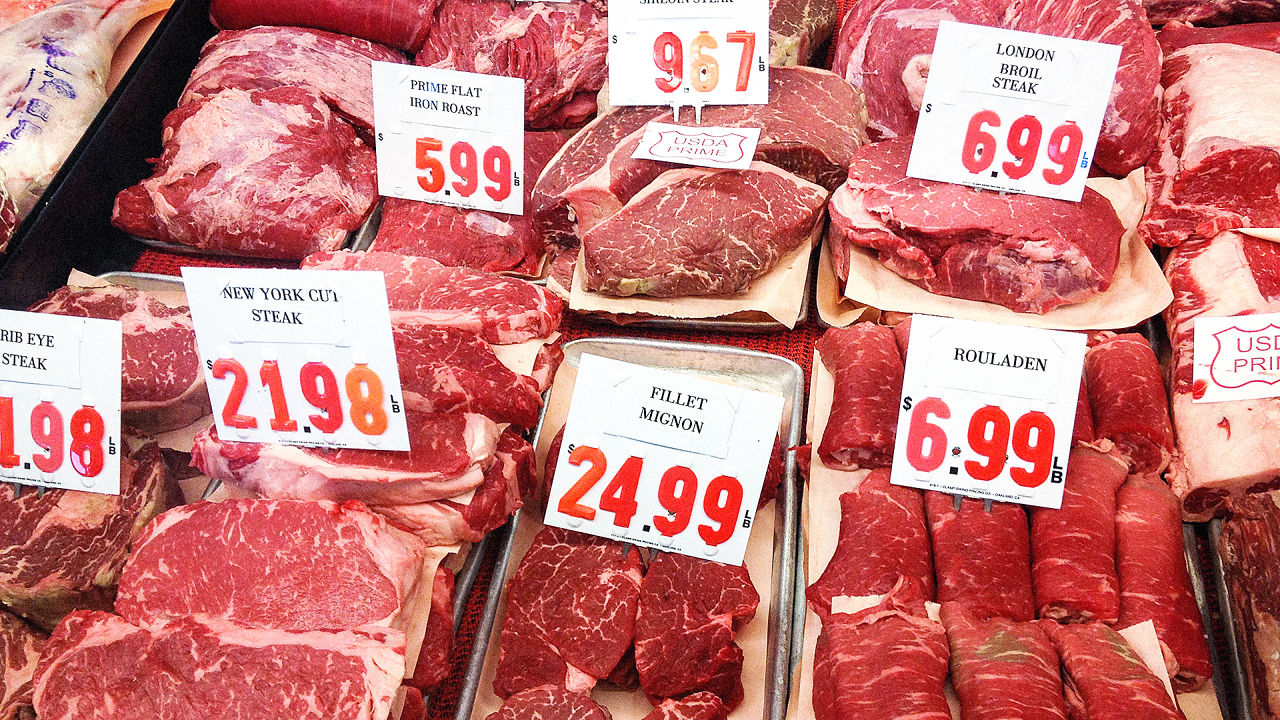New findings from researchers at the University of Oxford has sparked discussion on the imposition of a ‘meat-tax’ on red and processed meat products. The study revealed the potentially lifesaving effects that such a measure could have on UK households; including the estimate that a price increase of 13% on red meat and 79% on processed meat could amount to a 22% fall in deaths (or 60000 a year) and save more than £700m in healthcare costs in the near future. Add this to the prospect of environmental benefits and surely Westminster would be mad not to consider this as a new policy move?
Perhaps a slightly lesser-talked-about killer than, say, sugary drinks and fast food joints, red and processed meat are nonetheless major culprits in increasing risk of cancers, heart attacks and strokes. No one is going so far as to suggest an outright ban on such foods, but, arguably, many people aren’t aware of what the meat they eat could be doing to their physical health and a subtle nudge in the right direction with regards to this would not go amiss. Arguably, government policies need to change and adapt with the emergence of new research findings and a meat-tax is simply the next logical step in following recent similar price measures on alcohol and sugary drinks.
However, on the flip side, there is much to be said for the argument that such an imposition is strongly suggestive of an overly-involved nanny state. If we decide we are okay with this, then when do we draw the line when it comes to government intervention in our eating habits? Maybe they should shut down all our fast-food joints, rid the supermarket shelves of non-wholemeal bread or criminalize cigarette smoking too. Taxing meat sends us down a slippery slope towards letting the government involve themselves in every aspect of our lives, not to mention the detrimental effects it could have on input prices for small businesses, export competitiveness and the weekly food budgets of lower-income households as a consequence of the regressive nature of such taxes.
The environmental argument is a relatively weak one too. Climate change is not going to be solved by John from Coventry eating a couple less bacon sandwiches a week for his lunch break, it requires a much more seismic change at a much higher level. Greenhouse gas emissions from meat production are a fact but one that does tend to be over-exaggerated. The real culprits of climate change are multinational corporations turning a blind eye to renewable energy sources, deforestation and governments who refuse to support positive environmental change. Not John from Coventry.
Certainly, the new research certainly shouldn’t be ignored altogether. But the first thought shouldn’t be to immediately jump to hiking up prices; it should be looking at pushing awareness campaigns or subsidizing healthier foods instead. Adding a tax is a solution that is vastly out of proportion with the problem itself; there are a great many people who eat red and processed meat as part of a well-balanced, healthy diet and another number who need it to tackle things like anaemia and iron deficiency as well. Why should their bank accounts need suffer for the sake of those few who are eating too much?
Maybe some of us should be eating less meat. But there is not enough evidence to prove that such a tax would necessarily be effective in making us do this. If the government want to enact positive change on this front, there are a number of far less invasive ways that they could be doing so. Leave our bacon sandwiches alone please.
Isabel Ralphs
Image: [Plant Based News]

